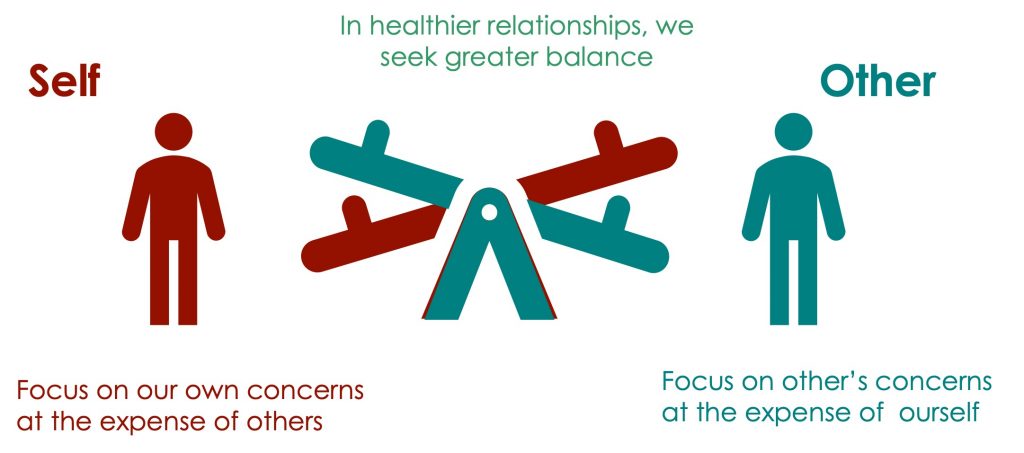
Our interpretations of the world include interpretations of ourselves as human beings. In other words, we build the meaning of who we are into our self-story, which emanates from our experiences particularly as they relate to our core concerns. Our ‘dignity’ refers to assessments of the respect held for our sense of self.
Our sense of dignity stems from assessments we make about ourselves. Are we a worthwhile person? Are we loved and respected by others? Are we a person of integrity? Do we measure up to our community’s norms? These are just of few of the concerns we live with. We can also refer to the SCARF model – Status, Certainty, Autonomy, Relatedness and Fairness – to explore more questions in relation to our self-story.
We can think of dignity in terms of self-respect as well as the respect shown by others.
We are social beings and our-self-story is generated in the context of the communities in which we live. When we interact with someone else, we engage with their dignity and their concerns. The quality of a relationship will be impacted by how we take care of our own dignity but also the dignity of the other person.
If someone significantly cares for their own concerns above the other’s concerns, they are likely to utilise the paradigm of control as a means to getting what they want. After all, they are interested in what matters to them rather than the other person. If the other person largely does the same, then their relationship will be prone to conflict and a significant lack of trust as both form an assessment a lack of care for the other.
If someone tends to largely focus on the other’s concerns to the detriment of their own, they are likely to live a passive defensive life more concerned about what others think of them than what they think of themselves. The implication is that other people and their concerns are more important than they.
A healthy relationship that manifests mutual well-being and self-esteem will involve a balanced approach to both person’s dignity. This balance can be seen as ‘mutual care’ and is referred to as ‘The Dignity Equilibrium’.
